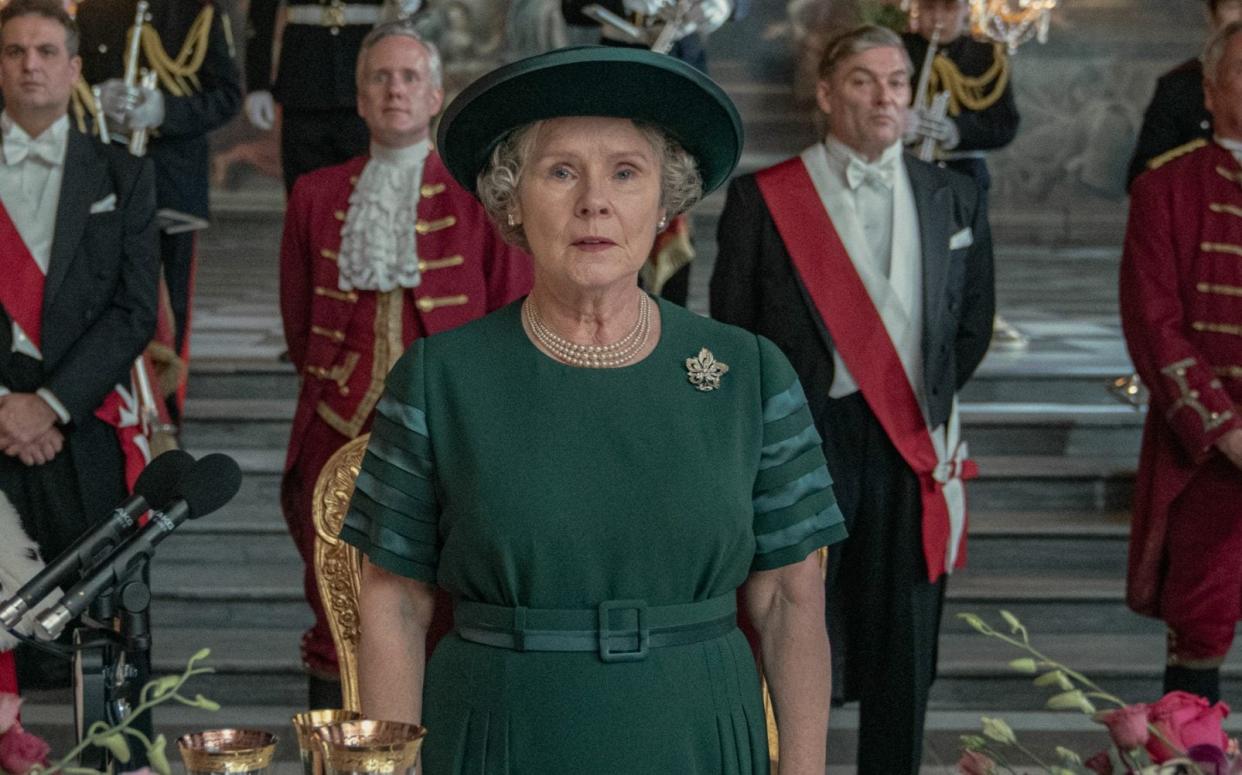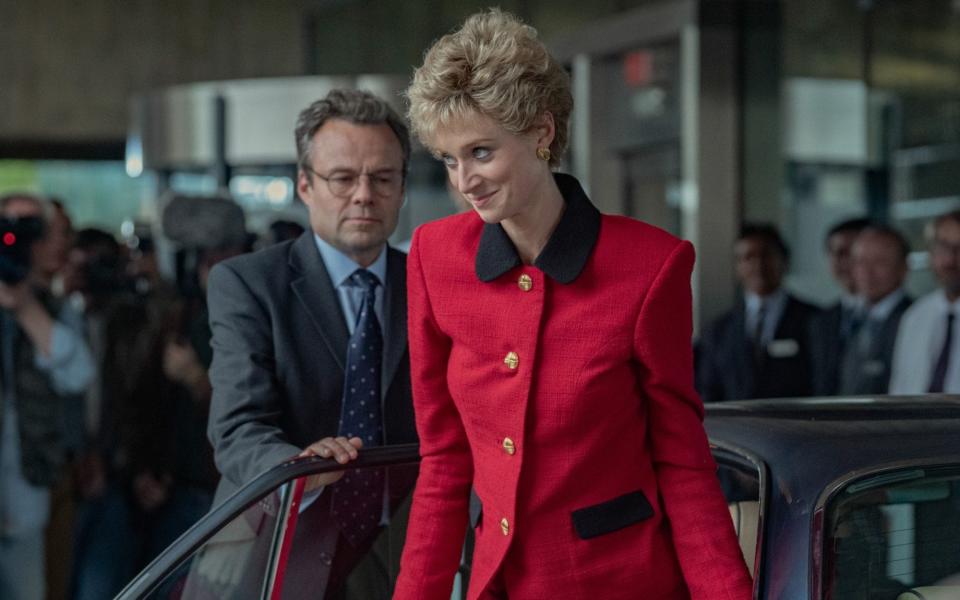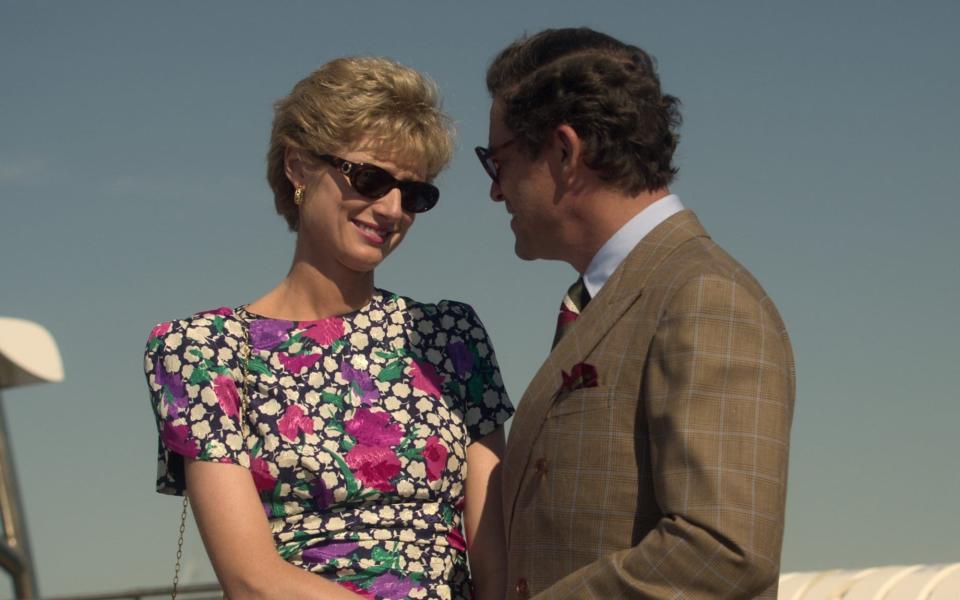The Crown is ‘odious’ and an ‘absolute disgrace’, says Queen Mother’s biographer

The Crown has been branded “odious” and “deliberately hurtful” by The Queen Mother’s official biographer as it emerged on Sunday the Netflix series appears to have invented a scene in which Prince Charles tells his mother she should be “thrown… into jail” for being a bad mother.
Details of the contents of the next series are beginning to emerge as well as criticism over The Crown’s coverage of recent historical events.
In a letter in The Telegraph, William Shawcross, Queen Elizabeth the Queen Mother’s official biographer, is excoriating, adding his weight to growing opprobrium.
“The Crown is an odious series, filled with lies and half-truths encased in lace and velvet,” writes Mr Shawcross, adding: “It is astonishingly and deliberately hurtful to individual members of the Royal family, public servants who cannot answer back, let alone sue for damages.”
He goes on to accuse the drama’s creator Peter Morgan of waging “a campaign to abuse” the monarchy and “to destroy by lies a vital institution”. He calls the campaign “an absolute disgrace”.

Mr Shawcross’s anger follows Sir John Major’s condemnation of the programme for inventing conversations between the former prime minister and late Queen. Sir John said he had never been approached by the programme’s makers and that the imagined scenes were “damaging and malicious fiction”.
On Sunday, Lord Carey, the former Archbishop of Canterbury, complained to The Telegraph that a scene had been made up in which the late Queen confides that the breakdown of her children’s marriages “begins to look like parental failure of the most awful kind”. Lord Carey said he was “surprised” that such a scene was created in the series, adding: “It bears no resemblance to any conversation I ever had with the Queen.”
The Crown’s writers also appear to have invented a conversation between the Prince of Wales, now King Charles, and his mother to have taken place in 1992, the year described by the late Queen as her “annus horribilis”. According to reports, Charles tells the Queen “that if we were an ordinary family and social services came to visit they would have thrown us into care and you [the Queen] into jail”.
Buckingham Palace has declined to comment on the contents of The Crown as they have emerged. An official said the King would not be making any statement.
But a friend of His Majesty has previously described the drama as “exploitative” and said Netflix would have “no qualms about mangling people's reputations”.

A spokesman for Netflix said: “The Crown has always been presented as a drama based on historical events. Series 5 is a fictional dramatisation, imagining what could have happened behind closed doors during a significant decade for the royal family - one that has already been scrutinised and well-documented by journalists, biographers and historians.”
The penultimate season of the drama covers the period from 1991 until 1996, meaning that the tumultuous breakdown of Charles and Diana’s marriage, and the role of Camilla Parker Bowles, will be the main plotline running throughout all ten episodes.
The focus on the fallout from the breakdown of Charles and Diana’s marriage comes at a time when the new King is enjoying a surge in popularity following his accession.
In the past, Netflix has made clear that The Crown is a dramatic series and has never sought to portray it as a documentary account.
It is understood that the description of the show on Netflix will distinguish The Crown as a drama and that viewers will be directed to other content about the events dramatised in the series.
Dominic West, the actor who plays Prince Charles in the new series, has defended the scripts which he said were based on “imagined conversations” and stressed that he was “evoking” the King, not imitating him.
“I think people understand because the cast has changed every two seasons, that this is not an imitation,” he said. “This is an evoking of a character. That’s really where the show lives: in the imagined conversations of their private life, which is something that no one knows.”
He added: “I think that’s what it gets a lot of criticism for. How can you know what they talk about in their private lives?
“The obvious answer is we don’t, but we have an incredible writer, a dramatist, who imagines based on exhaustive research, and that’s really part of the fascination of the show.”


